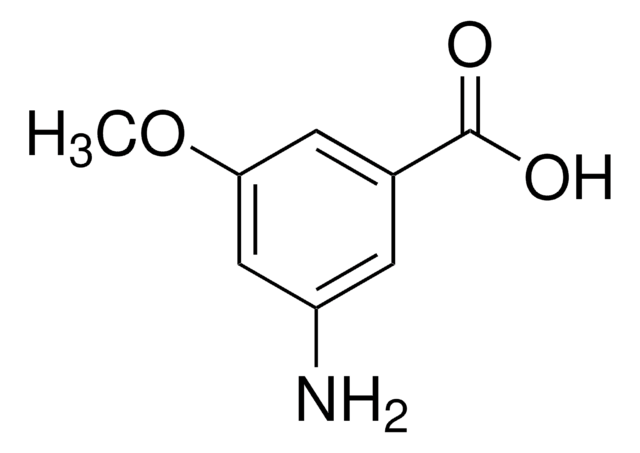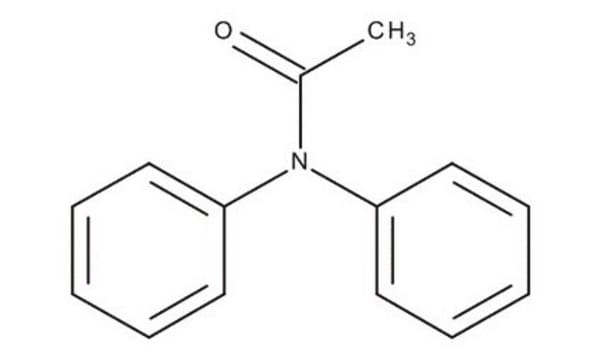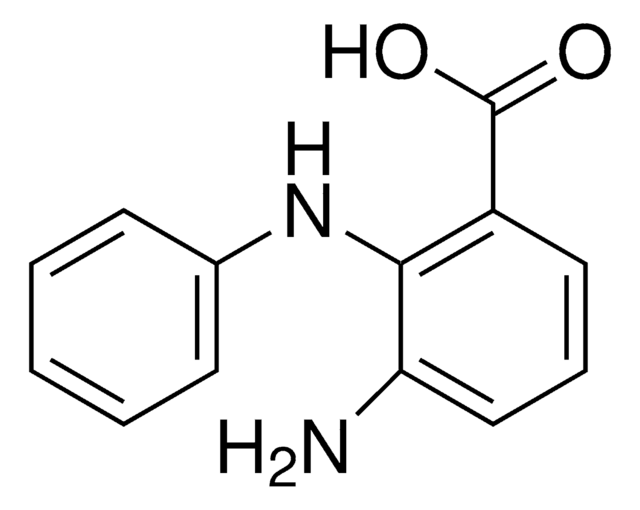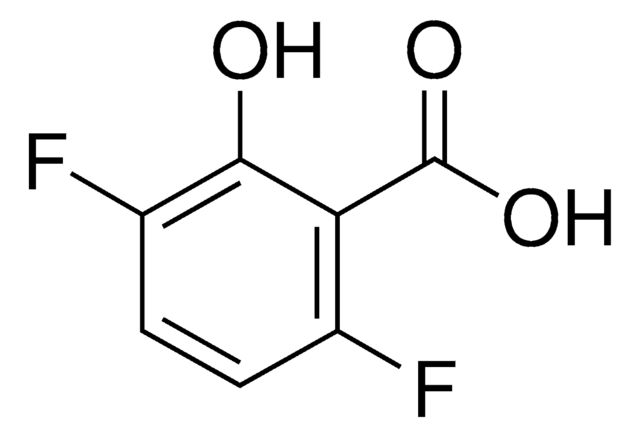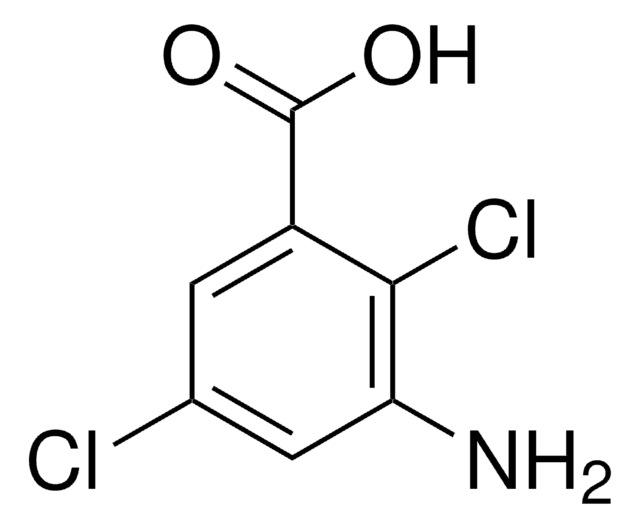About This Item
Recommended Products
Assay
97%
reaction suitability
reaction type: solution phase peptide synthesis
mp
211 °C (dec.) (lit.)
application(s)
peptide synthesis
SMILES string
Nc1ccc(C(O)=O)c(Cl)c1
InChI
1S/C7H6ClNO2/c8-6-3-4(9)1-2-5(6)7(10)11/h1-3H,9H2,(H,10,11)
InChI key
MBDUKNCPOPMRJQ-UHFFFAOYSA-N
Looking for similar products? Visit Product Comparison Guide
Storage Class Code
11 - Combustible Solids
WGK
WGK 3
Flash Point(F)
Not applicable
Flash Point(C)
Not applicable
Personal Protective Equipment
Certificates of Analysis (COA)
Search for Certificates of Analysis (COA) by entering the products Lot/Batch Number. Lot and Batch Numbers can be found on a product’s label following the words ‘Lot’ or ‘Batch’.
Already Own This Product?
Find documentation for the products that you have recently purchased in the Document Library.
Our team of scientists has experience in all areas of research including Life Science, Material Science, Chemical Synthesis, Chromatography, Analytical and many others.
Contact Technical Service
